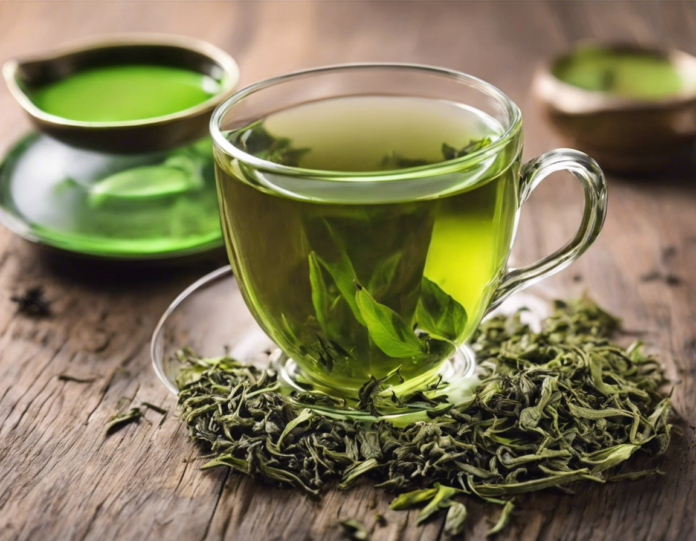Introduction
Green tea has been hailed as a superfood for centuries, with numerous health benefits that have made it a popular choice among health enthusiasts worldwide. From weight loss to improved brain function, the benefits of green tea are vast and varied. In this comprehensive guide, we will explore the many advantages of green tea, the science behind its effectiveness, and how you can incorporate this miracle drink into your daily routine for optimal health and well-being.
What is Green Tea?
Green tea is made from the Camellia sinensis plant and is known for its high concentration of antioxidants and other beneficial compounds. Unlike black tea, green tea undergoes minimal processing, which helps to retain its natural properties and health benefits. It is rich in polyphenols, particularly catechins, which are powerful antioxidants that help to protect the body from free radicals and oxidative stress.
Health Benefits of Green Tea
-
Weight Loss: Green tea is often touted for its ability to aid in weight loss. The catechins in green tea have been shown to boost metabolism and increase fat burning, making it a popular choice for those looking to shed a few pounds.
-
Improved Brain Function: The caffeine and amino acid L-theanine in green tea can have synergistic effects that improve brain function. Studies have shown that green tea can enhance memory, focus, and overall cognitive function.
-
Heart Health: Green tea has been linked to a reduced risk of heart disease. The antioxidants in green tea help to improve blood flow, lower cholesterol levels, and reduce the risk of blood clots.
-
Cancer Prevention: Some studies suggest that the antioxidants in green tea may help to reduce the risk of certain types of cancer, including breast, prostate, and colorectal cancer.
-
Anti-Inflammatory Properties: The polyphenols in green tea have been shown to have anti-inflammatory effects, which may help to reduce inflammation in the body and lower the risk of chronic diseases.
-
Improved Dental Health: The catechins in green tea can help to kill bacteria and inhibit the growth of viruses, which may improve dental health and reduce the risk of infections.
How to Incorporate Green Tea Into Your Routine
-
Brewing Methods: To make the perfect cup of green tea, use water that is around 80°C (176°F) and steep the tea for 2-3 minutes. Avoid boiling water, as this can cause the tea to become bitter.
-
Green Tea Extracts: If you’re not a fan of the taste of green tea, you can still reap the benefits by taking green tea supplements or extracts. These are available in capsule or liquid form and can be easily incorporated into your daily routine.
-
Green Tea Smoothies: Blend green tea with fruits, vegetables, and a source of protein for a delicious and nutritious smoothie that will give you a boost of energy and antioxidants.
-
Green Tea Ice Cream: Indulge in a guilt-free treat by making your own green tea ice cream. Simply steep green tea in milk, mix with cream and sugar, and churn in an ice cream maker for a refreshing dessert.
-
Green Tea Face Masks: Green tea can also be used topically to improve skin health. Mix green tea powder with honey or yogurt for a soothing face mask that can help to reduce inflammation and fight acne.
FAQs About Green Tea
-
Is green tea high in caffeine?
Green tea contains caffeine, but in lower amounts compared to coffee. A cup of green tea typically contains about 20-30 mg of caffeine, whereas a cup of coffee can contain 80-100 mg of caffeine. -
Can I drink green tea if I’m pregnant?
While moderate green tea consumption is considered safe during pregnancy, it’s best to consult with your healthcare provider to determine what is appropriate for your individual situation. -
How many cups of green tea should I drink per day?
Drinking 2-3 cups of green tea per day is generally considered safe and beneficial for most people. However, excessive consumption can lead to side effects due to the caffeine content. -
Are there any side effects of drinking green tea?
In general, green tea is safe for most people when consumed in moderation. However, some individuals may experience side effects such as insomnia, stomach upset, or headaches due to the caffeine content. -
Is green tea better than black tea?
Both green tea and black tea have their own set of health benefits due to their unique compositions. Green tea is higher in antioxidants, while black tea may have different effects on heart health and cholesterol levels.
In conclusion, green tea is a versatile and potent beverage that offers a wide range of health benefits. From weight loss to improved brain function and heart health, incorporating green tea into your daily routine can have a profound impact on your overall well-being. Experiment with different brewing methods, recipes, and skincare applications to discover the myriad ways in which green tea can enhance your life. Explore and enjoy the wonders of green tea for a healthier and happier you.

